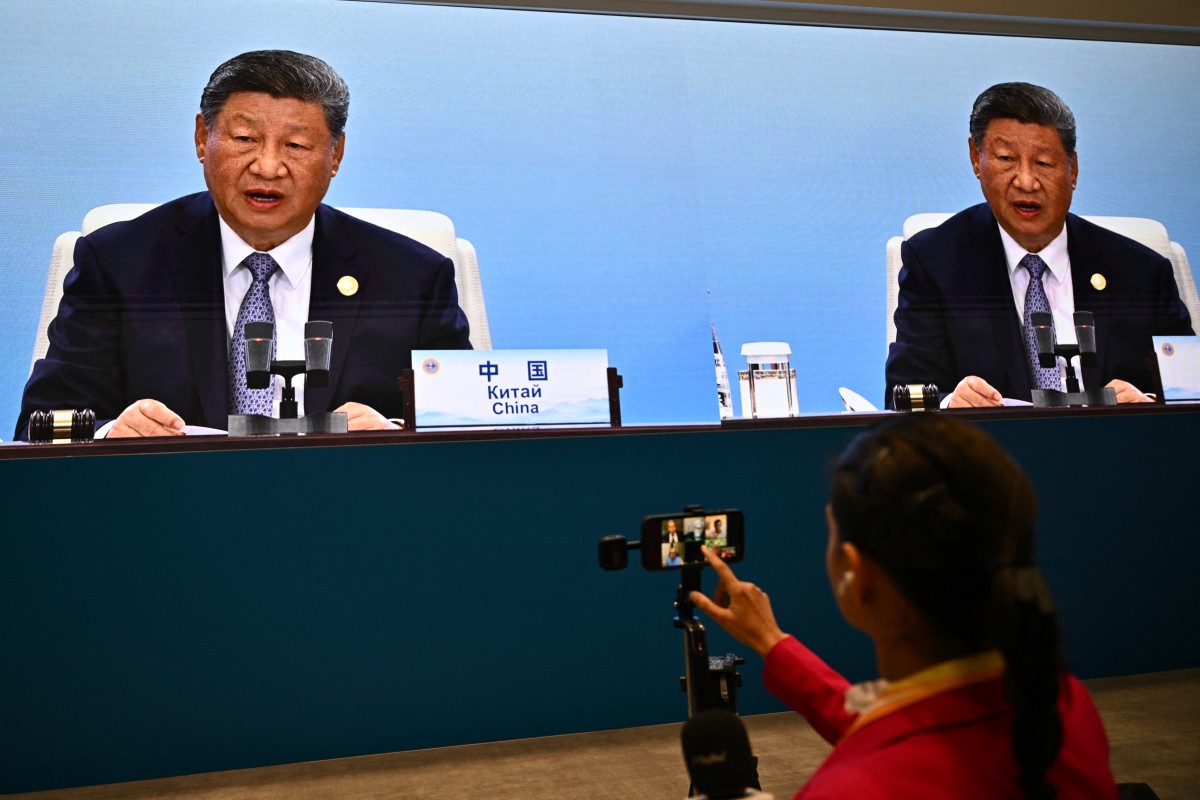Tianjin, China – Russia and Belarus presidents joined two dozen Eurasian leaders on Monday at a ceremony hosted by China’s Xi Jinping, on the final day of a showpiece summit aimed at putting Beijing front and centre of regional relations.
Russian President Vladimir Putin touched down in Tianjin on Sunday with an entourage of senior politicians and business representatives.
Xi held a flurry of back-to-back bilateral meetings with leaders including Belarusian President Alexander Lukashenko — one of Putin’s staunch allies — and India’s Prime Minister Narendra Modi who is on his first visit to China since 2018.
Modi told Xi that India was committed to taking “forward our ties on the basis of mutual trust, dignity and sensitivity”.
The two most populous nations are intense rivals competing for influence across South Asia and fought a deadly border clash in 2020.
A thaw began last October, when Modi met with Xi for the first time in five years at a summit in Russia.
‘Mutual benefit’
Large sections of Tianjin were closed to traffic, with a significant police presence deployed around the city.
Official posters promoting the SCO lined the streets, displaying words such as “mutual benefit” and “equality” written in Chinese and Russian.
China and Russia have sometimes touted the SCO as an alternative to the NATO military alliance. This year’s summit is the first since US President Donald Trump returned to the White House.
More than 20 leaders including Iranian President Masoud Pezeshkian and his Turkish counterpart Recep Tayyip Erdogan are attending the bloc’s largest meeting since its founding in 2001.
Putin is expected to hold talks on Monday with Erdogan and Pezeshkian about the Ukraine conflict and Tehran’s nuclear programme respectively.
Many of the assembled dignitaries will be in Beijing on Wednesday to witness the military parade, which will also be attended by North Korean leader Kim Jong Un.
Xi slams ‘bullying’ behaviour in world order
The Shanghai Cooperation Organisation, which is gathering for a two-day summit, comprises China, India, Russia, Pakistan, Iran, Kazakhstan, Kyrgyzstan, Tajikistan, Uzbekistan and Belarus — with 16 more countries affiliated as observers or “dialogue partners”.
China and Russia have sometimes touted the SCO as an alternative to the NATO military alliance.
“The current international situation is becoming chaotic and intertwined,” Xi told the leaders.
“The security and development tasks facing member states have become even more challenging,” he added.
“Looking back, despite tumultuous times, we have achieved success by practicing the Shanghai spirit,” he said, referring to the name of the group.
“Looking to the future, with the world undergoing turbulence and transformation, we must continue to follow the Shanghai spirit, keep our feet on the ground, forge ahead, and better perform the functions of the organisation.”








